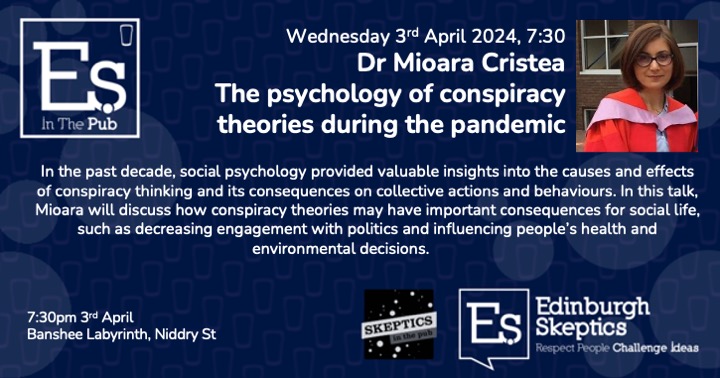
Conspiracy theories – the belief that events, situations, or outcomes are the result of a secretive, often malicious, plot by a group of people, organizations, or entities – have always been an important feature of social life. In recent years, their popularity has significantly increased, particularly on social media with the rise of fake news and misinformation.
While some of these theories are harmless, they can contribute to the spread of misinformation, erode trust in institutions, and even incite irrational fear or paranoia, making them an important challenge in many societies today, particularly when dealing with national or international crises such as natural disasters, health pandemics, or the climate change crisis.
In the past decade, social psychology provided valuable insights into the causes and effects of conspiracy thinking and its consequences on collective actions and behaviours. In this talk, I discuss how conspiracy theories may have important consequences for social life, such as decreasing engagement with politics and influencing people’s health and environmental decisions. I will particularly focus on the role of conspiracy beliefs in predicting people’s behaviours during the COVID-19 pandemic (e.g., trust in institutions, trust in science, and vaccine scepticism). Finally, I will discuss some of the limitations of research in this field and propose some potential avenues for future research.
This event is organised by Edinburgh Skeptics.

